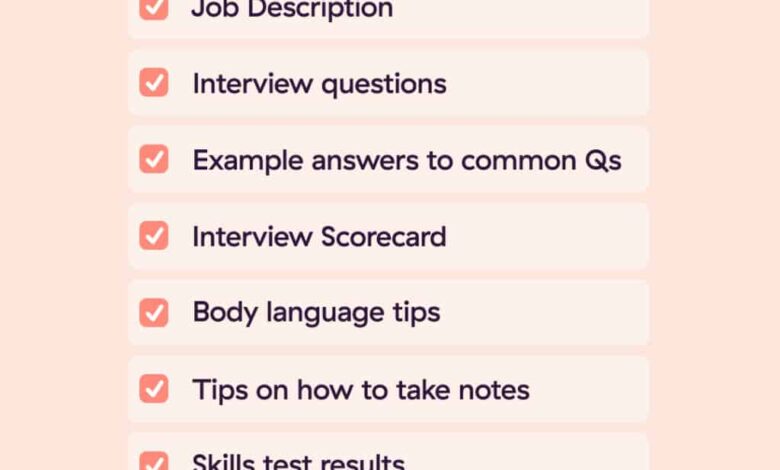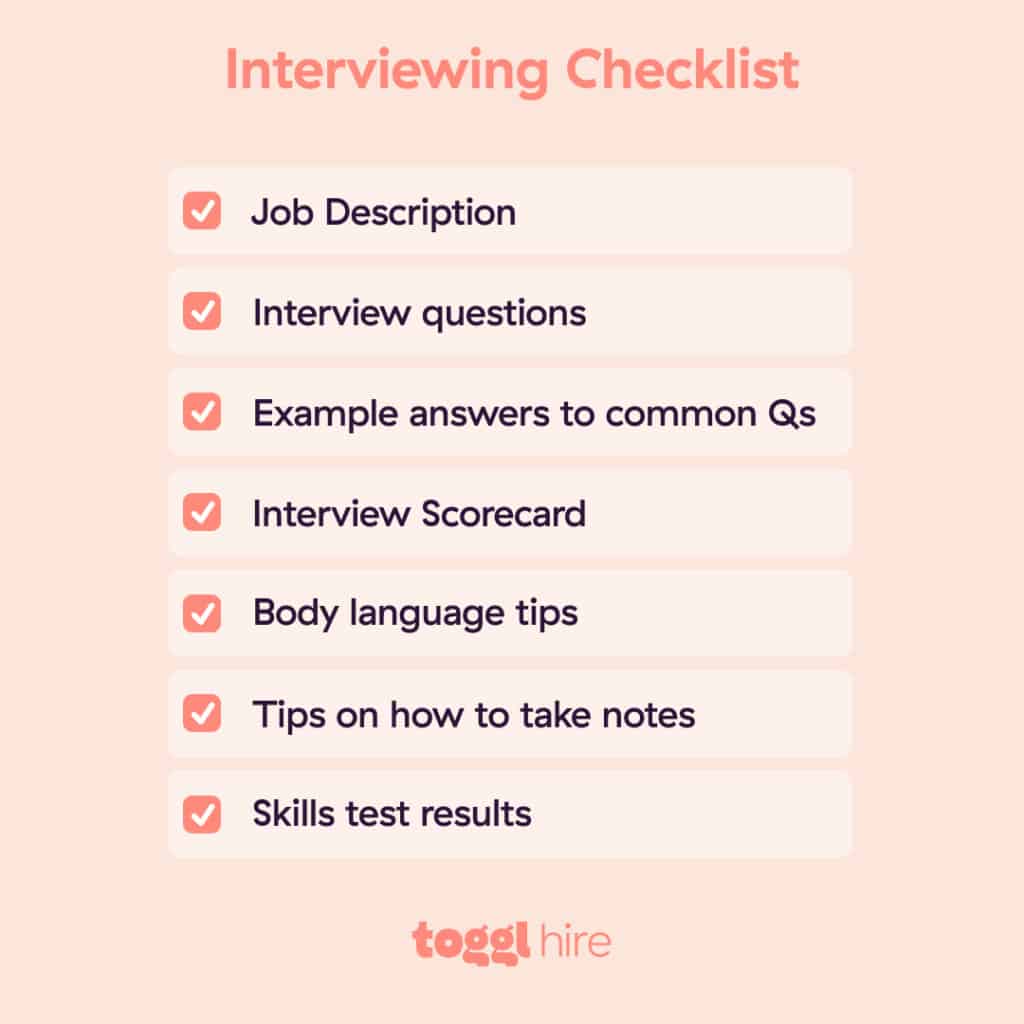
9 Questions to Gauge Potential Hire Trustworthiness
9 questions you can ask to gauge the trustworthiness of potential hires – Hiring the right people is crucial for any organization’s success, but it’s not just about skills and experience. Trustworthiness is a key factor that can make or break a hire. “9 Questions to Gauge the Trustworthiness of Potential Hires” provides a framework for identifying truly reliable individuals who will contribute positively to your team.
The interview process is your chance to delve deeper than resumes and cover letters. By asking insightful questions, you can uncover a candidate’s true character, values, and potential red flags. This article offers nine essential questions designed to assess a candidate’s trustworthiness, along with tips for interpreting their responses.
Understanding the Importance of Trustworthiness: 9 Questions You Can Ask To Gauge The Trustworthiness Of Potential Hires

In the realm of business, trust is the bedrock upon which successful relationships are built. Hiring trustworthy individuals is paramount for any organization seeking to thrive. It’s not just about competence; it’s about ensuring that the people you bring on board share your values, act with integrity, and contribute to a positive and productive work environment.
Consequences of Hiring Untrustworthy Employees
Hiring untrustworthy employees can have far-reaching consequences, impacting not only the individual’s performance but also the overall well-being of the organization.
- Erosion of Trust:When one employee is untrustworthy, it can create a ripple effect, undermining trust among colleagues and potentially damaging relationships with clients and stakeholders. This can lead to a culture of suspicion and distrust, hindering collaboration and innovation.
- Decreased Productivity:Untrustworthy employees may engage in unethical or counterproductive behaviors, such as stealing, lying, or sabotaging colleagues. This can significantly reduce team productivity and impact the organization’s bottom line.
- Reputational Damage:A single untrustworthy employee can tarnish the reputation of the entire organization. This can lead to a loss of customer confidence, investor interest, and ultimately, market share.
- Legal and Ethical Issues:Untrustworthy employees may engage in illegal activities, such as fraud or embezzlement, exposing the organization to legal liabilities and ethical controversies.
The Power of Questions in Assessing Trustworthiness
In the realm of hiring, where first impressions are fleeting and resumes can be embellished, the art of asking insightful questions becomes paramount. These questions serve as a potent tool, allowing you to delve beyond superficial qualifications and gain a deeper understanding of a candidate’s character, values, and potential for trustworthiness.
Unveiling Character and Values
Well-crafted questions can act as a mirror, reflecting a candidate’s true nature and revealing their underlying values. By exploring their past experiences, their approach to challenges, and their motivations, you can gain valuable insights into their decision-making process, ethical compass, and commitment to integrity.
For example, asking about a time they had to make a difficult ethical decision can shed light on their values and how they handle situations where integrity is tested.
9 Essential Questions to Gauge Trustworthiness
Trustworthiness is a cornerstone of any successful professional relationship. When hiring, it’s crucial to assess not just skills and experience, but also the character and integrity of potential candidates. This is where insightful questions come into play. By asking the right questions, you can gain valuable insights into a candidate’s ethical compass, decision-making processes, and overall trustworthiness.
Describing Ethical Decision-Making
Asking candidates to recount a time they faced an ethical dilemma reveals their moral compass and how they navigate difficult situations. This question goes beyond hypothetical scenarios and delves into real-life experiences, offering a more authentic glimpse into their values and decision-making process.
| Situation | Action Taken |
|---|---|
| A colleague was taking credit for your work. | I approached my colleague privately and calmly explained that I had completed the work. I also documented my contributions to ensure proper recognition. |
| You discovered a serious error in a project that was about to be presented to a client. | I immediately informed my manager and team about the error, and we worked together to rectify the situation before the client presentation. |
Handling Conflict in a Professional Setting
Conflict is an inevitable part of any workplace. Understanding how a candidate approaches conflict reveals their ability to maintain professionalism, resolve disagreements constructively, and prioritize the overall team’s goals. This insight is crucial for building a cohesive and productive team environment.
- Collaborating Style:Candidates who demonstrate a collaborative approach, seeking to understand different perspectives and find mutually beneficial solutions, are more likely to foster trust and maintain positive relationships.
- Compromise and Negotiation:The ability to compromise and negotiate effectively is a valuable skill in conflict resolution. Trustworthy candidates are willing to find common ground and work towards a solution that benefits all parties involved.
- Avoiding Escalation:Candidates who can de-escalate conflict, remain calm under pressure, and avoid personal attacks demonstrate emotional intelligence and a commitment to maintaining a professional environment.
Learning from Failure
Everyone makes mistakes. What matters is how we learn from them and grow. A candidate’s response to a failure situation reveals their honesty, willingness to take responsibility, and capacity for self-improvement. This insight is crucial for identifying individuals who are adaptable, resilient, and committed to continuous learning.
- Positive Response:A candidate who acknowledges their mistake, analyzes the situation to understand the root cause, and Artikels specific steps they took to prevent future occurrences demonstrates self-awareness, accountability, and a growth mindset.
- Negative Response:Candidates who deflect blame, minimize the impact of their mistake, or fail to learn from the experience may lack accountability, self-awareness, and the willingness to grow.
Career Goals and Alignment with Company Values
A candidate’s career aspirations offer a glimpse into their ambition, values, and long-term vision. By understanding their goals, you can assess their alignment with the company’s mission, values, and culture. This alignment is crucial for ensuring that the candidate’s aspirations are in sync with the organization’s direction and that they are committed to contributing to its success.
- Ambition and Integrity:Candidates with clear, well-defined career goals that are aligned with the company’s values demonstrate ambition, a sense of purpose, and a commitment to ethical conduct.
- Long-Term Commitment:Candidates whose goals are aligned with the company’s strategic direction and growth trajectory are more likely to be engaged, motivated, and committed to long-term success.
Work Style and Collaboration
A candidate’s work style and collaborative approach reveal their ability to function effectively within a team, communicate clearly, and contribute to shared goals. This is essential for building a cohesive and productive work environment where individuals can collaborate effectively and leverage each other’s strengths.
- Effective Collaboration:Candidates who actively listen, share information openly, seek feedback, and contribute to team discussions demonstrate strong collaboration skills and a willingness to work towards shared goals.
- Ineffective Collaboration:Candidates who are resistant to feedback, fail to communicate effectively, or prioritize individual goals over team objectives may struggle to collaborate effectively and contribute to a positive work environment.
Handling Pressure and Deadlines
The ability to handle pressure and meet deadlines is a crucial skill in any workplace. This question reveals a candidate’s ability to manage stress, prioritize tasks, and maintain focus under pressure. It also offers insights into their commitment to meeting commitments and delivering results on time.
- Positive Response:Candidates who describe strategies for managing stress, prioritizing tasks, and maintaining focus under pressure demonstrate resilience, organization, and a commitment to meeting deadlines.
- Negative Response:Candidates who become overwhelmed by pressure, struggle to prioritize tasks, or fail to meet deadlines may lack the ability to manage stress effectively and handle responsibility.
Self-Awareness and Honesty
A candidate’s response to this question reveals their self-awareness, honesty, and willingness to acknowledge their strengths and areas for improvement. This insight is crucial for identifying individuals who are committed to personal growth and continuous development.
- Authenticity:Candidates who provide specific examples of their strengths and weaknesses, demonstrate a genuine understanding of their skills and limitations, and are willing to seek feedback and opportunities for growth are more likely to be trustworthy and committed to their personal development.
- Over-Confidence or Self-Criticism:Candidates who are overly confident or excessively critical of themselves may lack self-awareness or struggle to maintain a balanced perspective.
Standing Up for Beliefs
A candidate’s willingness to stand up for what they believe in reveals their commitment to their values, integrity, and courage. This insight is particularly important for roles that require ethical decision-making, advocacy, or the ability to challenge the status quo.
Hiring the right people is crucial for any business, and asking the right questions can help you gauge their trustworthiness. It’s not just about skills, but also about character and integrity. You want someone you can rely on, someone who embodies the values you hold dear.
Just like the culinary world lost a true gem in the food world remembers the one and only diana kennedy , you don’t want to lose trust in your team. So, remember to ask those tough questions that reveal true character, not just surface-level skills.
- Situations:Examples might include speaking up against unethical practices, advocating for a particular cause, or challenging a decision that goes against their values.
- Values and Integrity:Candidates who demonstrate a strong commitment to their values, even when facing difficult situations, are more likely to be trustworthy and act with integrity.
Engaging Questions
A candidate’s questions at the end of an interview reveal their level of interest, engagement, and desire to learn more. Insightful questions demonstrate a genuine interest in the role, the company, and the opportunity to contribute.
- Examples:“What are the biggest challenges facing the team currently?” or “Can you tell me more about the company’s culture and values?”
- Engagement:Candidates who ask thoughtful questions demonstrate a genuine interest in the opportunity and a desire to learn more about the company and the role.
Beyond Questions

While strategic questioning plays a crucial role in assessing trustworthiness, it’s essential to go beyond the interview stage and employ additional measures to gain a comprehensive understanding of a potential hire’s character and reliability. Beyond the carefully crafted questions, there are crucial steps to ensure you’re making a well-informed hiring decision.
These steps involve verifying information provided by candidates, assessing their overall demeanor and communication style, and conducting thorough background checks.
Background Checks
Background checks are an essential step in the hiring process, providing valuable information that can complement your interview assessments. They help verify the accuracy of a candidate’s claims and uncover any potential red flags.Here are some key reasons why background checks are important:* Verify employment history:Background checks help confirm the accuracy of a candidate’s work history, ensuring they haven’t misrepresented their experience or exaggerated their responsibilities.
Identify potential criminal history
A background check can reveal any criminal convictions or pending charges, allowing you to make informed decisions about the suitability of a candidate for a specific role.
Assess educational credentials
Background checks can verify the validity of a candidate’s educational qualifications, ensuring they possess the necessary knowledge and skills for the job.
Mitigate risks
Finding trustworthy employees is crucial, and asking the right questions can help you assess their character. While I’m busy perfecting my tropical boozy smoothie mango peach edition (because even hiring needs a reward!), I’m also thinking about the best questions to gauge someone’s honesty and integrity.
It’s all about finding the right blend of skills and character for a successful team.
By identifying potential red flags, background checks help you minimize the risk of hiring someone who may pose a threat to your organization or its employees.
Verifying References and Credentials
Thorough reference checks are crucial for gaining insights into a candidate’s past performance and character. * Contacting references:Reach out to the individuals listed on a candidate’s resume, asking open-ended questions about their work ethic, reliability, and overall performance.
Verifying credentials
Contact the educational institutions listed on a candidate’s resume to confirm their degrees and certifications.
Seeking additional references
Asking those 9 questions about a potential hire’s past experiences and how they handled ethical dilemmas can give you a good sense of their character, but remember, everyone needs support. Creating a supportive work environment is crucial, especially for those juggling work and caregiving responsibilities.
Check out 3 strategies for supporting family caregivers at work for ideas on how to create a more inclusive workplace. In the end, a trustworthy employee is one who feels valued and supported, and that’s something you can cultivate through thoughtful hiring practices and a compassionate work environment.
If possible, ask the candidate for additional references, such as former supervisors or colleagues, to gain a broader perspective on their professional history.
Assessing Demeanor and Communication Style
Beyond the words spoken, pay close attention to a candidate’s overall demeanor and communication style.* Body language:Observe a candidate’s posture, eye contact, and facial expressions. These nonverbal cues can provide insights into their confidence, honesty, and engagement.
Communication style
Evaluate how clearly and effectively a candidate communicates their thoughts and ideas. Look for signs of transparency, openness, and a willingness to be direct.
Professionalism
Assess a candidate’s professionalism, including their punctuality, attire, and overall demeanor during the interview process.
“Trust is built on a foundation of consistency, reliability, and honesty. Look for individuals who demonstrate these qualities throughout the hiring process.”
Building a Culture of Trust
A culture of trust is the bedrock of a successful organization. When employees trust their leaders, colleagues, and the organization itself, they are more likely to be engaged, productive, and innovative. This fosters a positive and collaborative work environment, leading to improved morale, retention, and overall performance.
Leadership’s Role in Cultivating Trust
Leaders play a crucial role in building a culture of trust. They set the tone for the organization, and their actions directly influence the level of trust employees feel. Here are some strategies leaders can employ:
- Demonstrate Integrity:Leaders must consistently act with honesty, transparency, and ethical behavior. This includes being open about decisions, acknowledging mistakes, and holding themselves accountable for their actions.
- Communicate Effectively:Clear, consistent, and timely communication is essential for building trust. Leaders should share information openly, answer questions honestly, and provide regular updates on important matters.
- Be Vulnerable and Approachable:Leaders who are willing to be vulnerable and show their human side build trust by creating a more relatable and approachable atmosphere. This encourages employees to feel comfortable sharing their thoughts and concerns.
- Empower Employees:Empowering employees by giving them autonomy and responsibility demonstrates trust in their abilities. This fosters a sense of ownership and increases employee engagement.
Promoting Open Communication and Transparency
Open communication and transparency are essential for building trust within an organization. This means fostering an environment where employees feel comfortable sharing their ideas, concerns, and feedback without fear of retribution.
- Encourage Feedback:Implement regular feedback mechanisms, such as employee surveys, suggestion boxes, and open forums, to gather employee input and address concerns. This demonstrates a commitment to listening and responding to employee needs.
- Foster Open Dialogue:Create a culture where open dialogue is encouraged and valued. This can be achieved through regular team meetings, informal gatherings, and opportunities for employees to connect with leaders and colleagues.
- Be Transparent with Information:Share information openly and honestly, even if it’s negative. This demonstrates a commitment to transparency and builds trust by showing employees that they can rely on accurate information.
Establishing Clear Expectations and Values, 9 questions you can ask to gauge the trustworthiness of potential hires
Clearly defined expectations and shared values provide a framework for trust and accountability within an organization.
- Define Expectations:Clearly communicate performance expectations, roles, and responsibilities to ensure everyone is on the same page. This reduces ambiguity and promotes clarity, leading to greater trust and accountability.
- Establish Shared Values:Develop a set of core values that guide the organization’s behavior and decision-making. These values should be communicated clearly and consistently, fostering a shared sense of purpose and ethical conduct.
- Reinforce Values Through Actions:Actions speak louder than words. Leaders must consistently demonstrate the organization’s values in their own behavior and decision-making, setting an example for others to follow.
Last Recap
Remember, building a team of trustworthy individuals is an investment in your organization’s future. By incorporating these questions into your interview process and considering additional factors like background checks and references, you can increase your chances of hiring reliable employees who will contribute to a positive and productive work environment.
The power of trust is invaluable, and it starts with asking the right questions.

